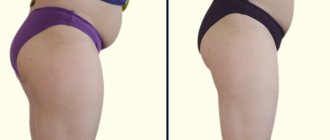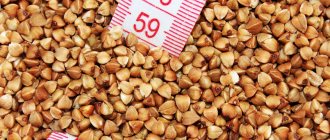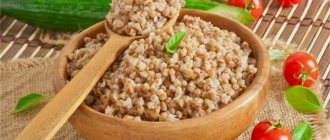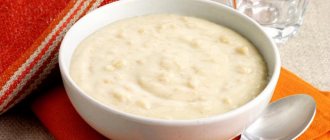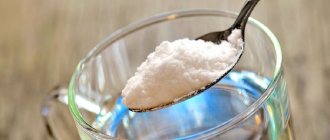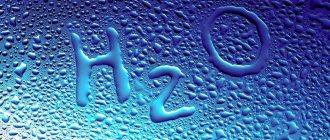Fasting has many varieties, some of which are used quite openly by doctors as a method of quick and drug-free cleansing. Common people, especially women, are more interested in methods to lose weight without using drugs. They think that fasting for 14 days will quickly solve the problem of excess weight, the main thing is to hold out.
Unfortunately, excess weight can cause many problems. This includes a deterioration in well-being, problems with movement and health. There are many different ways to lose weight and fasting for 14 days is considered one of the most common. It seems to people that if they go without food for 2 weeks, the extra pounds will evaporate without a trace. How effective is this approach? And is it safe to fast for such a long time at home, without medical supervision? And what do the experts themselves think?
Principles of losing weight
The key goals of fasting are general health, cleansing the intestines and removing toxins. Weight loss is not a top priority, but is a side effect.
Achieving sustainable weight loss is only possible with a calorie deficit. To reduce body weight, the amount of energy received must be lower than the energy expended. During fasting, a calorie deficit is inevitably created, which leads to weight loss due to the release of reserve reserves - adipose tissue. Additionally, due to the exclusion of carbohydrates and salt from the diet, the body no longer retains water. This promotes rapid loss of 2-5 kg depending on body weight.
The essence and features of 14-day fasting
During fasting, the body does not receive nutrients and toxins from the outside. This allows you to remove most of the toxins through the skin. The lack of useful compounds makes it necessary to obtain them from internal reserves. The body is renewed due to more efficient synthesis and economical consumption of vitamins, minerals and amino acids.
Additionally, when you refuse food, the load on the gastrointestinal tract decreases. The digestive organs rest and synthesize enzymes for better processing of food in the future. When there is a lack of fluid, the body uses adipose tissue to obtain water.
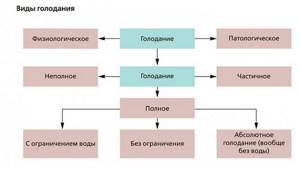
Features of fasting depend on the chosen method. There are several ways:
- Dry. This means refusing not only food, but also water. The dry method is considered the most extreme, so it is not recommended to practice it. This method is sometimes combined with a cyclic or cascade two-week method. Liquids are refused twice: on the 5th and 12th day of the general course. To obtain the full effect, it is recommended to refrain from any contact with water, but in case of insufficient preparation, hygiene procedures are allowed.
- On the water. During the process, a person refuses food and any drinks: tea, juice, herbal infusions, etc. Only water is allowed to drink. Most often, such fasting is combined with other methods due to harsh conditions and the occurrence of adverse reactions. A complete refusal to eat for 24–72 hours is considered conditionally safe. When combining several methods, they try to use the water method in the middle of the interval in order to have time to prepare the body.
- Cascade. The method is characterized by alternating periods of fasting and eating plant foods. The time intervals are gradually increased, adding 1 day at a time. This method is gentle, so it can be used by beginners after initial preparation of the body.
- Cyclical. In principle, the method resembles cascade fasting, but the periods of food refusal are determined by the person independently. With a 14-day period, it is recommended to do 2-3 full cycles of 5-7 days.
- Partial. The technique is considered gentle, so it is suitable for those who are practicing long-term fasting for the first time. The total calorie content of the daily diet is reduced to 200–300 kcal. They try to eat light foods that take up a lot of space in the stomach: fruits, vegetables, kefir, etc. Due to the intake of small portions of food, hunger may persist, but possible harm will be minimized.
- Periodic. The method involves alternating short periods of fasting and eating. The 16/8 scheme is considered the most effective. It involves eating food only for 8 hours a day. There are no strict restrictions on the choice of products, but to obtain a sustainable effect, you should adhere to the rules of a healthy diet. The periodic method is the most natural for the body, but its effectiveness is lower.
- Interval. The technique was developed for weight loss. The essence of the method is to achieve a calorie deficit without creating a stressful situation for the body. Fasting is carried out according to the 6/1 or 5/2 scheme for 2 weeks. A person eats healthy foods for 5–6 days, then fasts for 1–2 days. There are no strict restrictions, but it is recommended to avoid fast food. Due to short-term intermittent fasting, insulin production decreases, so fat tissue disappears and the feeling of hunger is less likely to occur.
The choice of technique depends on the initial state of the person and his expectations. If the procedure is carried out within 14 days, it is prohibited to use the dry method for the full period. Water fasting is suitable for refusing food only for 1–3 days. Although some people survive longer without food, extreme practices are not recommended. For general health, it is advisable to combine the water method and cascade or cyclic fasting. For weight loss, it is better to prefer the interval method.
Benefits and harms
The harm and benefits depend on the chosen fasting scheme. Most often, experts highlight the following advantages of the technique:
- Reducing body weight. By creating a calorie deficit, excess weight disappears and water is removed. The effect lasts for a long time if you exit the fast correctly. The procedure helps to avoid slowing down or stopping weight loss.
- Reducing the load on internal organs. While using the technique, the gastrointestinal tract rests. The stomach does not receive food for digestion, so it becomes possible to renew cells, regenerate and reproduce acids, enzymes and bile.
- Improved skin condition. There is a disappearance of inflammation and acne as a result of the removal of toxins.
- Cleansing organs and tissues. Normally, toxins are eliminated through the urinary and respiratory systems, as well as through the skin. However, new portions of toxins come from the external environment with food, which the body has to fight with. During fasting, toxins do not enter inside, but are actively removed from the bloodstream, which provides a cleansing effect.
- Sharpening the perception of the world. Due to the lack of food, reduced energy expenditure for digestion and natural processes, the functioning of the organs of vision, hearing and smell improves.
- Strengthening nails and hair. After recovering from fasting, the body continues to use resources more efficiently for some time, so with the same diet, tissues receive more minerals.
- No feeling of hunger. With the water method, it disappears on the 3rd day. In other cases, the period may be longer.
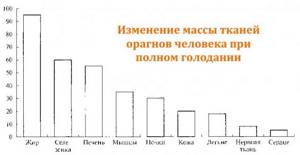
Possible harm is expressed by the following factors:
- The occurrence of adverse reactions. Weakness inevitably appears in the second half of the cycle.
- Deterioration of immunity. Due to insufficient energy supply, it becomes more difficult for the body to maintain an optimal temperature and fight pathogens.
- The occurrence of problems with hair, skin and nails during fasting. Due to insufficient intake of minerals, the body is forced to reduce costs. This occurs at the expense of the least important organs: nails, hair and skin.
- Development of diseases. The most severe complication is anorexia. If the rules of fasting are not followed, there is insufficient preparation and some individual characteristics, there is a risk of autoimmune pathologies, disturbances in the functioning of the gastrointestinal tract and metabolic abnormalities.
Advantages
Recovery through juices is recommended for the following pathologies and conditions:
- Inflammation of the intestines, prostate or uterus, liver and pancreas, ovaries;
- Depressive states;
- Cold;
- Poor circulation;
- Appendicitis;
- Diseases that provoke high acidity.

Juice fasting provides:
- Loss of body weight;
- Removal of toxins;
- Cell regeneration;
- Cleansing the body;
- Relief of chronic inflammation;
- Normalization of the activity of internal organs;
- Strengthening the alkaline environment.
The healing power of juices is explained by the presence of minerals, valuable enzymes, and vitamins . Raw fresh juices contain a small percentage of salt and minerals that act as a diuretic.
Such products are saturated with important biological substances. They strengthen immunity against various pathologies.
However, juice fasting has its disadvantages, which include the following:
- Negative effects of acid on teeth, which requires special care (constant mouth rinsing);
- The method is prohibited for gastritis;
- A long cleansing procedure can provoke an increase in acidity;
- The juice diet provokes diabetes;
- The diet is contraindicated for people leading an active lifestyle;
- It is not advisable to use juices for weight loss in children, the sick, the elderly, pregnant women, and nursing mothers.
Rules for refusing food
Preparation
In the presence of chronic diseases, the method of entering fasting is determined by the attending physician. If there are no recommendations, you should switch to a light diet 5–7 days before the procedure. Animal products and high-calorie dishes, including baked goods and sweets, are excluded from the menu. The basis of the diet is vegetables, fruits and grains. If possible, it is advisable to eat foods raw. It is allowed to drink juice, but it must be natural and not contain sugar. It is advisable to switch to fractional meals. It is necessary to maintain a water regime and consume 2–3 liters of liquid per day.
During preparation, it is forbidden to overeat. There should be a slight feeling of hunger. Otherwise, the process of getting rid of toxins will be difficult. On the first day of fasting, you need to do a cleansing enema. Add salt to the solution (1 tablespoon per 1.5 liters of water).
Starvation
The rules of fasting depend on the chosen method. The water method requires complete abstinence from food. It is forbidden to drink tea, coffee, decoctions, etc. With interval, periodic, cyclic and cascade methods, it is advisable to consume vegetables and fruits according to the chosen scheme. If you partially refuse food, you need to monitor the caloric content of your diet.
You must drink at least 2 liters of water per day
When using the technique, you must drink at least 2 liters of water per day. This will help activate your metabolism and facilitate the removal of toxins.
To remove metabolic products from the surface of the skin, hygiene procedures should be taken every day.
To prevent dehydration and cleanse the mucous membranes, you should rinse your mouth with water 5-6 times a day.
Breaking out of fasting
There are the following general principles for breaking fasting:
- familiar dishes are introduced into the menu gradually;
- you should follow the rules of a healthy diet;
- During rehabilitation, it is prohibited to consume foods that are difficult for the gastrointestinal tract;
- It is advisable to stick to fractional meals;
- The duration of the exit should be equal to the time of refusal to eat.
The most popular exit method is to drink juice. In the first 2-3 days you need to drink 1 liter of nectar every day. The juice is diluted with water (1:2). The pulp is removed from the drink. The juice is drunk in small sips and in small portions. You should prefer carrot, apple or orange nectar. Beetroot and grape juices are considered undesirable because they contain a lot of sugar.
After the first phase, until day 5–6, the juice is drunk undiluted. You can leave the pulp while cooking. By the end of the first week, buckwheat porridge, rice, steamed and fresh vegetables, and fruits are introduced into the menu. Salt, sugar and butter are not added to dishes. After eating, there should be a slight feeling of hunger. After a week, they gradually return to their usual diet. You can include fermented milk products and nuts in the menu.
How to cook

Juicing
Juices must be squeezed only from fresh products and consumed immediately - this is an important rule. To preserve most of the beneficial elements, it is recommended to use a juicer. To prevent drinks from losing these nutritional properties and value, you should:
- Choose quality products;
- It is good to wash them with water;
- Remove the peel from products that cannot be processed entirely with a thin knife;
- Be sure to wash peeled vegetables with water (but it is not necessary to wash fruits after peeling).
Be sure to read: Effective tips on how to remove fat from your knees
Juices cannot be stored, since exposure to air destroys all useful elements (enzymes, vitamins). This is reflected in the activity and bioenergetic potential of the drink. If there is still a need to preserve the liquid, then it is better to place it in a thermos, but not for long.
You need to start a juice fast with unmixed juices. It is better to use citrus fruit juices at the beginning of the diet. It is useful to add rhubarb and lemon extract to fresh berry juices. Juices can be made from a mixture of sweet and sour berries.
When preparing a healthy product, it is important to know the rules of compatibility of fruits and vegetables. The best compositions are considered:
- Radish and pear, orange;
- Carrot and apple;
- Pineapple and celery;
- Root vegetables (radish, beets, carrots) and celery;
- Apples and tomatoes.
It is better not to add other juices to cherries, plums, and cherries.
Main contraindications
Hunger is stressful for the body, so if the functioning of internal organs is impaired, the use of the technique should be abandoned. With chronic diseases, the risk of exacerbation increases. If necessary, you should first consult a doctor. The greatest danger is posed by fasting due to metabolic disorders.
It is not recommended to start with a long-term refusal of food without prior preparation. At first, it is advisable to prefer short-term water diets. The occurrence of the following symptoms indicates insufficient preparation of the body:
- dehydration;
- frequent bouts of vomiting;
- fainting;
- severe decrease in blood pressure;
- swelling.
If your health worsens, you need to gradually return to your usual diet. You can try again later, but you should choose a shorter period. If adverse reactions appear again, it is necessary to avoid fasting or prefer more gentle methods.
It is prohibited to refuse food during the rehabilitation period after surgery. This is due to the need for wound healing and adaptation of the body. As a result of nutrient deficiency, regeneration processes will slow down. Lack of food to digest can lead to improper reorganization of the gastrointestinal tract. In the future, this will cause digestive disorders, nausea, vomiting and other side effects.
You should not fast during pregnancy and lactation. A water diet is dangerous not only for the mother, whose body is forced to expend more energy and nutrients to maintain optimal condition, but also for the child.

During intrauterine development, the fetus requires more vitamins and minerals for the formation of internal organs and systems. If a child does not receive nutrients from healthy foods, developmental abnormalities will appear. Possible fetal death. After birth, the child’s body continues to develop, so the woman must continue to adhere to proper nutrition.
Fasting is prohibited for people over 65 years of age. The older a person is, the more metabolic processes slow down, and there is a risk of metabolic disorders and the development of other pathologies. Organs and tissues become more prone to destruction. Lack of nutrients for a long time can lead to insufficient cell restoration. This can lead to the development of destructive and inflammatory processes.
You should abandon the water diet if you are immobilized. A similar condition can occur in advanced cases of tuberculosis, cancer, critical damage to connective tissues, neuropsychiatric abnormalities, etc. However, sometimes if other conservative measures are ineffective, doctors allow the practice of fasting in a hospital setting under the supervision of staff.
Important to remember
Sometimes even a day of hunger strike can bring severe, irreversible consequences, especially if the practitioner belongs to a “risk group” for whom fasting is contraindicated. After all, this is stress caused to the body deliberately. Fasting should not be perceived as an easy, quick way to lose weight; it is a serious, complex method that includes several stages.
Doctors' opinions about him are complex. Some experts agree, yes, fasting is an ancient method of quick cleansing, often used by doctors; there are known cases when it alleviated the course of a serious illness or completely cured it. And now, along with the development of technology and laser surgery, sometimes people are prescribed short fasting, purely for medicinal purposes.
However, a number of side effects of fasting cannot be denied. Problems with the gastrointestinal tract, metabolism, the risk of exacerbation of existing diseases or the emergence of new diseases. Sometimes the danger of a technique outweighs all its advantages.

Contrary to the opinion of doctors, folk practitioners are sure that fasting is wonderful and natural. Even the prophets and philosophers of the ancients staged voluntary hunger strikes, wanting to clear their minds, gain inspiration, and new ideas. People can and should use a method that has been proven over the years, centuries, the main thing is to follow the rules described, find out how to fast correctly, then the result will definitely come.
Who to believe? After all, doctors don’t worry without reason, and practitioners seem to describe their own experience of a starving person. A compromise can be found. For example, having chosen a fasting method, undergo a medical examination and obtain the consent of a specialist. At the same time, find out more about fasting. Perhaps the doctor will help adjust the fasting conditions to suit the patient’s individual capabilities. Then the possible risk will decrease.
By the way, there are special centers where people fast in groups in a hospital setting. There doctors constantly monitor their condition, give advice, and support. Sometimes it is easier to fast with company than alone.
It is not necessary to choose exactly the 14-day fasting method; a more gentle regime is suitable for beginners.
Recommendations for hungry people
Beginners should start with a one-day fast to gradually prepare the body. Caution must be exercised when using extreme techniques if you are overweight. Due to excess toxins and reorganization of the body's work, intoxication is possible. Periods of food abstinence must be combined with proper nutrition, otherwise the result will be unstable. Lost weight may return, increasing the risk of developing diseases.
During fasting, it is advisable to avoid excessive physical exertion and exposure to unfavorable conditions. When using a long-term technique, an optimal ambient temperature should be maintained to minimize energy expenditure and prevent bacterial contamination. You can take warm baths. The water should not be too hot.


